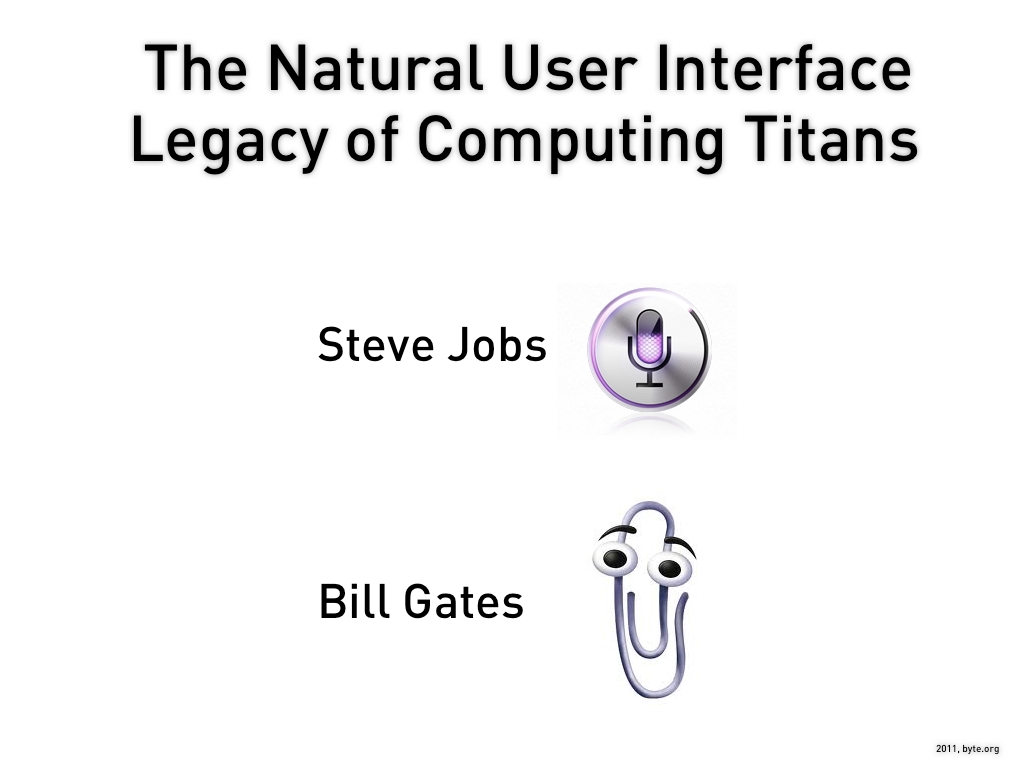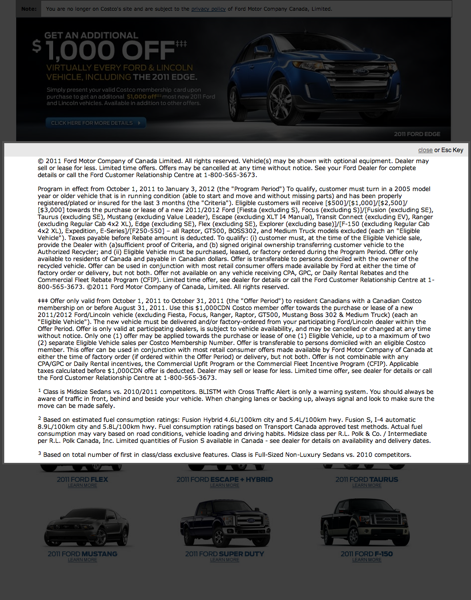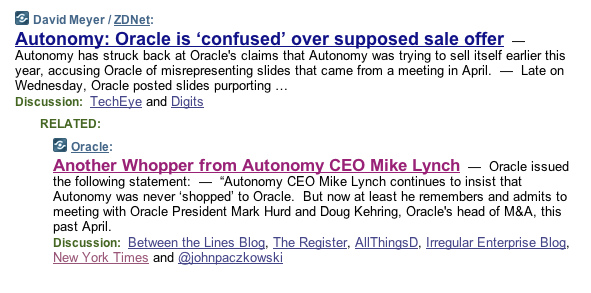Housecleaning…
I’ve been on a bit of a digital purge lately. I’m not sure what triggered this, but I’ve been diligently paring back what I do online to a much narrower range of activities. In the past few weeks, I’ve
- deleted most of the apps on my iPad and iPhone, including G+ and Facebook. Twitter survived the cut.
- removed all the shortcuts from my browser bar to sites like Hacker News, Techmeme, Facebook, etc.
- ditched a ton of blogs from Google Reader, mostly the Mac rumour sites. Yeah, I get it. Apple is going to release a new iPhone. What passes for news with some of these blogs is pretty astounding.
- dumped satellite TV and my 100 channel universe for an over-the-air antenna which gets maybe 15-20 channels on a good day. For free.
- dropped Boxcar for iOS and Lion. As cool as it was to have all my my notifications show up on all my devices at the same time, boy was it distracting.
The effects are predictable. I’m finding it easier to focus and get tasks done more quickly. I’m also enjoying my leisure a bit more. Less time spent reading RSS feeds translates into more time reading books and writing – both of which I find immensely enjoyable. And of course, time with Rowan and Amanda isn’t interrupted nearly as much by silly things like G+ notifications and the like.


 I was pleased to
I was pleased to  Home Depot has the advantage of its retail locations that give customers the opportunity to do some hands-on shopping and comparison. However I’m certain that for many items, the savings will be enough to compel many customers to do their browsing in Home Depot’s big box stores and place their order online after they’ve made up their mind to make sure they capture the savings that Amazon is passing along.
Home Depot has the advantage of its retail locations that give customers the opportunity to do some hands-on shopping and comparison. However I’m certain that for many items, the savings will be enough to compel many customers to do their browsing in Home Depot’s big box stores and place their order online after they’ve made up their mind to make sure they capture the savings that Amazon is passing along.




Comments…